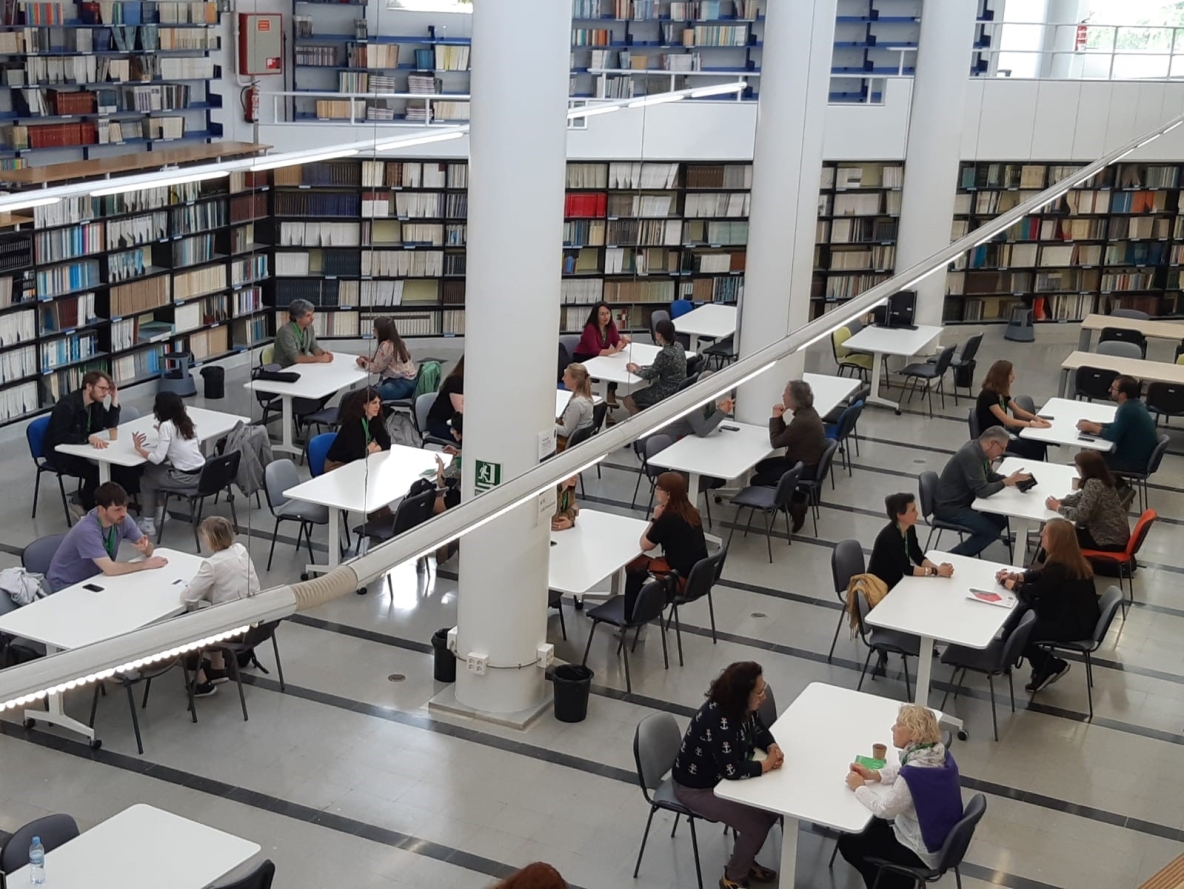

On April 28-29, Dr Rachel Murphy (History) and Dr Elaine Walsh (Technical Communication and Instructional Design) attended a Young European Research Universities (YERUN) workshop on Digital Humanities at the Autonomous University of Barcelona (UAB). This workshop was an opportunity for digital humanities researchers to share ideas and expand their knowledge of the connection between digital humanities and digital heritage, whilst developing new research links.
The Autonomous University of Barcelona, the University Pompeu Fabra, and the University of Antwerp extended an invite to YERUN universities. Participants came from universities across Europe, including Austria, Belgium, Croatia, Cyprus, Finland, Germany, Ireland, Italy, the Netherlands, Portugal, and Spain.
We were welcomed to the workshop by Màrius Martínez, Vice Rector for International Relations, after which Silvia Gomez joined us by video conference. As Secretary-General of YERUN, she was supportive of the workshop, which aimed to develop new links between member universities. Juan Antón Barceló, Director of the master’s degree in Digital Humanities and Heritage, then provided an overview of key aspects of the course and outlined priorities for the heritage sector.
There followed a ‘speed meeting’ session (see figure 1). Modelled on speed dating, each attendee was allocated four minutes to discuss their research interests and expertise with one participant, who then reciprocated. After this, one of the pair moved to the next table to meet another researcher, and so on. This meant that we each had detailed discussions with sixteen of the thirty-seven attendees and were able to meet most of the others during the lunch and coffee breaks.
Having got to know our fellow participants, we had an opportunity to visit the university’s Digital Lab, located in the humanities Library. Some of the technologies that we got to try out included virtual reality equipment designed to explore life in ancient settlements and a 3-D laser scanner used to recreate historical artefacts that students can touch and hold (without worrying about damaging the original!).
The following morning the Dean of the Faculty of Arts and Humanities at UAB welcomed the participants to the university. The first keynote speaker, Frédéric Kaplan (President of the Time Machine Organisation), spoke about the Time Machine project which aims to collect and aggregate fragmented data about Europe’s past and to create ‘a common history for Europe’. The second keynote speaker, Alejandra Campos (Senior Advisor at UAB), discussed upcoming funding opportunities for research and education in digital humanities.
The highlight of the workshop was the opportunity to work together (see figure 2) to develop potential digital humanities and heritage research projects. Following an initial brainstorming session to identify a problem and a proposed solution, six of these ideas were selected for further development. We spent the remaining time working collaboratively to develop the idea and identify appropriate funding options. The session ended with a presentation of our individual projects. Working with academics from a range of backgrounds and expertise made this an enjoyable experience and was an effective way of starting to think about creating funding proposals.
The workshop was a great way of meeting academics from the YERUN network who are interested in developing projects in the field of Digital Humanities and Heritage. The sessions highlighted the importance of such collaborations in preserving the past for future generations. Examples of current digital projects run by members of UL’s Faculty of Arts, Humanities and Social Sciences include the IRC-funded Death and Burial Data: Ireland 1864-1922 project (PI Prof Ciara Breathnach, History) and OS200 – Digitally re-Mapping Ireland’s Ordnance Survey Heritage (PI Dr Cat Porter, Geography and Prof Keith Lilley Queen’s University Belfast), jointly funded by the IRC AND AHRC. With recent developments including the launch of the University of Limerick’s Digital Library and Glucksman Library makerspace, and a VR lab in the pipeline, we hope that there is potential for future collaborations in this key area of research.
Email: ahss@ul.ie
Phone: +353-61-202700
Postal Address: AHSS Faculty Office, University of Limerick, Limerick, Ireland.